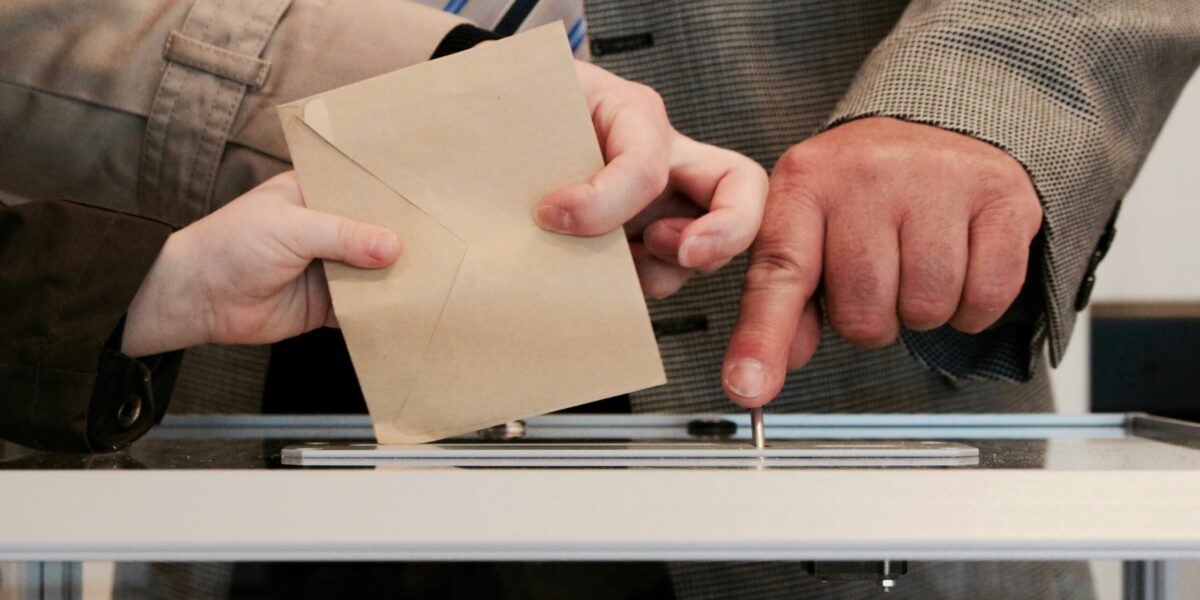Jahangir Mohammed argues that India’s election results will mark the demise of its secular democracy and the Congress Party and a further move toward a Hindu Supremacist State.
India’s Elections: The End of Secular Democracy and Rise of Hindu Supremacy.
India is amid its most historic moment since independence from Britain. The largest democracy in the world (with 960 million voters) is staging seven-phase elections for representatives to the Lok Sabha ending on 1st June. The ruling BJP and its allies the NDA are on course to win a landslide (400 of the 543 seats), increasing their majority even further (353 in 2019). The BJP leader Narendra Modi is set to consolidate his grip on power since becoming its Prime Minister in May 2014
The Demise of the Congress Party as a Political Force.
The Congress party and the Gandhi dynasty dominated India’s first 50 years of post-independence politics. However, election opinion polls now indicate the BJP enjoys 64% support with the Congress Party led by Rahul Gandhi 17%. This would mean the Congress-led INDIA bloc gaining 38 seats, less than its 52 in the 2019 election. Congress is contesting under 400 seats in an election for the first time, with over 100 others being contested under its allied INDIA Bloc.
While Rahul Gandhi remains a popular leader across the country, the ruling BJP has consolidated its power base across all government agencies including the judiciary and police, politicising them against Muslims and political opponents. Congress and opposition members have complained of legal intimidation. Over 100 opposition politicians have been suspended since the last election, with some subsequently joining the BJP. Rahul Gandhi was also convicted for two years for criminal defamation (suspended in August 2023).
Gandhi has alleged that Congress bank accounts have been frozen, severely restricting their political activities and campaigning. During the election campaign, he also lodged complaints to the Election Commission about the rhetoric of Modi and the BJP being divisive, inciting sectarianism, and misleading the electorate by portraying Congress as favouring Muslims and prioritising them financially over Hindus.
The BJP has undoubtedly targeted opposition figures and weakened India’s political institutions. In doing so they have bolstered their autocratic rule.
The Demise of Secular or “Composite” Nationalism
The underlying political reality for India is much deeper than the near collapse of political opposition. The 2024 election result will mark a permanent ideological shift away from India’s founding political framework of unifying Indian nationalism of the Indian National Congress (Congress Party founded in 1885), eventually led by Mahatma Gandhi.
At the heart of the movement was the idea of Hindu-Muslim unity (the key founders/thinkers including Mohammed Ali Jinnah initially all agreed on this). This was the view that the two main religions, among others, while free to practice their faiths and develop their religious personalities, would be equals under a secular nationalist polity and state.
The notion of religious plurality and tolerance between Hindu-Muslim was something that the Mughals had previously tried to nurture during their rule, culminating in Emperor Akbars attempts to bridge Hindu-Muslim relations (Deen-e-ilahi and the underlying principle of Sulh-i-Kul were probably among the earliest attempts at finding a solution to inter-faith differences). Shireen Moosvi professor at Aligarh Muslim University argues Sulh-i-Kul was a genuine attempt to meet the needs of a multi-religious India. Long before the Indian Constitution made secularism the cornerstone of Indian democracy, Akbar had practiced it, she claims.
The British Raj played the politics of divide and rule in India. Yet they also allowed the application of local religious laws and customs of Hindus and Muslims under their administration of the country.
This thinking of equality and co-existence was also found in the notion of “Composite Nationalism” championed by Islamic scholars. Notably the Principal of the Darul Uloom Deoband, Maulana Sayyid Hussain Ahmed Madani in 1938 in his “muttahida Qaumiyat Aur Islam”, argued that his approach was to be found in the Quran as the Prophets shared the same territory as the unbelievers. He claimed the Quran encourages a harmonious multi-cultural, multi-racial, and multi-faith world.
Madani’s approach was challenged by the great Muslim philosopher and poet Mohammad Iqbal, whose knowledge and experience of European democracy and nationalism, led him to conclude that Muslims would be under grave threat in a huge majoritarian Hindu democratic state.
Muhammad Ali Jinnah took up Iqbal’s concerns calling initially for a loose federalist state where representation of Muslims would be guaranteed in its polity and published a list of his 14 demands. This however was rejected by Congress who preferred a strong centralised Indian state. Failure to reach agreements on his demands led to the call for two separate states.
A Victory for the RSS and Hindu Nationalism
Whilst secular nationalism was shaping Indian independence, another political ideology was taking shape. In 1915 the Hindu Mahasahba (All India Hindu Grand Assembly) pressure group was formed. This group wanted India to be ruled as a Hindu Nation, rejecting the accommodation with other religious minorities. The Mahasahba was also more capitalist in its outlook while Congress leaned towards Socialism. Eventually, the group became a political party with V.D. Savarkar, the founder of Hindutva ideology, becoming its first leader in 1937.
The spread of Hindu Nationalism (Hindutva) has been the handiwork of a whole range of community, youth, religious and political organisations collectively known as the Sangh Parivar (family). This includes Vishva Hindu Parishad (VHP World Hindu Council), the Rashtriya Swayamsevak Sangh (RSS or National Volunteer Society), and the Bharatiya Janata Party (BJP). The BJP was established initially as the BJS (Bharatiya Jana Sangh) in 1951 as the political arm of the RSS.
The RSS is a grassroots volunteer army and the indoctrination and military training arm of a movement to establish a Hindu supremacist state in India. The RSS conducts ideological and military preparation in training camps (shakas). Narendra Modi was a member and product of the RSS, as are many members of his party.
In 1977, in alliance with other parties, the BJS formed the Janata Party and was in power for three years with Morarji Desai as the Prime Minister. After the dissolution of the Janata Party in 1980, the BJP was formed. Under its leader Atal Bihari Vajpayee, it had several spells in power in alliance with others, with Vajpayee as the Prime Minister. The BJP has been in power since 2014. It has gone from having only 2 seats in Parliament in 1984 to 303 in 2019, while Congress has gone from 404 seats to 52 in the same period.
Therefore, the real political victors in India have been the RSS and its Hindutva supremacist ideology.
What Next for Muslims in India
Muslims in India were already marginalised across a range of social and economic factors even before the rise of the RSS and the BJP. Under the BJP these conditions have further deteriorated. Muslims have become the victims of a Hindutva ideology of blatant faith-based discrimination and hate (inspired by Hitler and Mussolini’s fascism). Muslims are regularly targeted by elements inspired by Hindutva nationalism and the machinery of the state. That hate is whipped up by Hindu nationalist pro-BJP media/social media, and laden with stereotypes, lies, and conspiracy theories about Muslims, as well as Pakistan. This climate has enabled legislative changes that have altered the idea of India as a nation where religious minorities can co-exist as equals. Even aspects of Sharia laws that were even allowed under British rule are now being repealed. Genocide Watch has already raised concerns that India’s 200 million Muslims (15%) of the population faces all the early signs of an impending genocide.
A real issue for Muslims in India is that they are nowhere near a majority in any state (except the annexed Indian-occupied state of Jammu and Kashmir). In all the states they inhabit, most of the population is Hindu in huge numbers. Muslims are also under-represented in politics and governance therefore unable to exert change in its politics. There is no safety in numbers for Muslims in India. This puts them at risk from a population that either has been or can be radicalised by a Hindutva ideology and lead to even more discrimination and violence. Especially in states where there is a strong RSS presence and BJP rule.
The RSS, BJP, and media rhetoric also target Pakistan as the source of evil, with plenty of myths and conspiracy theories. Muslims in India are portrayed as being loyal to or agents of Pakistan and anti-nationalist. An economically strong India radicalised by fascist ideology poses a genuine threat to a Pakistan that is economically and politically in ruin.
During the election, Modi and members of his party have been making military threats against Pakistan. Modi asserted his government has adopted a new approach to Pakistan “Today, India doesn’t send dossiers. ‘Aaj Bharat ghar mein ghus ke marta hai’ (today, India enters homes of terrorists and hits them hard).” Indeed, a Guardian investigation revealed that India had been assassinating individuals inside Pakistan. On Azad Kashmir, headlines in Naya Bharat states: “Mission LOC, India punishes Pakistan through surgical strikes,” “Modi told the gathering.” Interior Minister Amit Shah has stated that even Pakistani-administered Kashmir “belongs to India and no one can snatch it.”
The story of India’s 2024 elections is likely to be complete state capture by the RSS with its Hindutva supremacist ideology, complete with its fascist agenda of hate against Muslims, other minorities, and casteism. It was an affiliate of the RSS Nathuram Godse who assassinated Mahatma Gandhi, and it is an affiliate of the RSS (Modi) and his BJP that are assassinating India’s secular democracy and the Congress Party.
The situation for Muslims in India will get much worse after the election. Where this will lead no one can say, but the direction is clear. Ironically, with the RSS and BJP in power, it may eventually transpire that the only real solution for the safety of India’s Muslims may be the creation of a loose federation of states with majority Muslim populations. Something that Congress had initially rejected. For India’s Muslims, genuine independence and freedom are unfinished business and seem far away.
|
Muslim Population by State in India 2024 |
|||
| State | Total Population | Muslim Population | Percentage |
| Jammu & Kashmir | 12.5 million | 8.6 million | 68.30% |
| Assam | 31.2 million | 10.7 million | 34.20% |
| West Bengal | 91.3 million | 24.6 million | 27% |
| Kerala | 33.4 million | 8.8 million | 26.60% |
| Uttar Pradesh | 199.8 million | 38.5 million | 19.30% |
| Bihar | 104.1 million | 17.6 million | 16.90% |
| Karnataka | 61.1 million | 7.9 million | 12.90% |
| Delhi | 16.8 million | 2.1 million | 12.90% |
| Gujarat | 60.4 million | 5.8 million | 9.70% |
| Rajasthan | 68.5 million | 6.2 million | 9.10% |
| Andhra Pradesh* | 84.6 million | 6.9 million | 8.20% |
| Maharashtra | 112.4 million | 12.9 million | 11.50% |
| Madhya Pradesh | 72.6 million | 4.8 million | 6.60% |
| Tamil Nadu* | 72 million | 4.2 million | 5.86% |
| Haryana* | 25.4 million | 1.2 million | 4.82% |
| Odisha* | 42 million | 0.9 million | 2.17% |
| Punjab* | 27.7 million | 0.5 million | 1.93% |



Leave a Reply